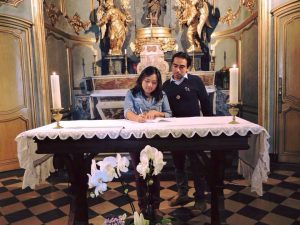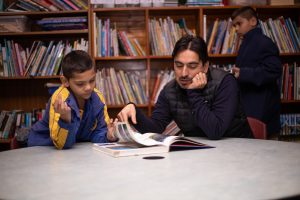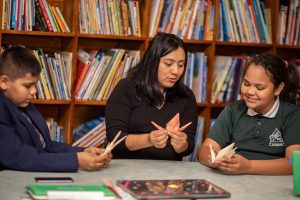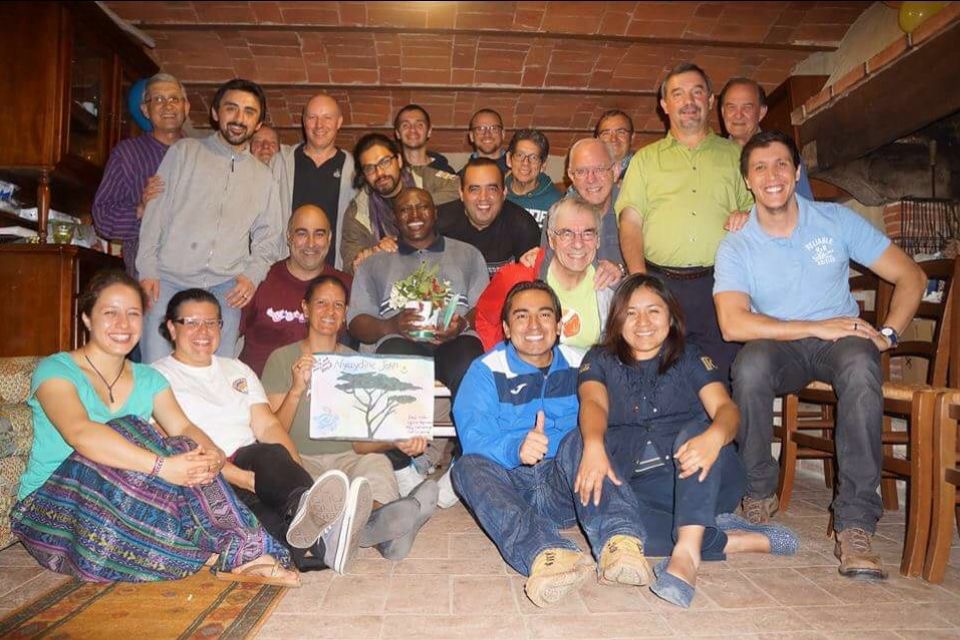By Rodrigo Gris Castro, Marist lay
Participating in the new LaValla200> communities was a great experience full of learning and challenges. We make “global availability” a reality, boldly responding to emerging needs, creating intercultural communities that serve youth on the margins of life. By participating in the new communities’ program, with my wife Argelia Hernández, we were partners of the Spirit, we raised our hands for something new, exciting. This is our way of understanding the call of the “Annunciation”, of responding to the daily invitation to “Be a Marist”.
“There is no viable future for international religious orders unless they seriously undertake the transition from international to intercultural”, Anthony Gittins.
Each of the participants in the program received the invitation in different ways: through discernment, walking with uncertainty, but somehow with the ability to respond and fulfill the mission. People told us that it is the courageous and generous leave the comforts of the family, their own culture, language and family to live and work in a foreign land. Maybe it is, but with the eyes of faith, the way that we have before us is an opportunity given by God, not only to serve in a life-giving way, but also to receive much, sharing the experience of being part of a great Marist family.
In 2016, we began our training for the LaValla200> program and for 4 years our community located on the outskirts of Sydney, Australia, we worked closely with the Diocese to solve the problem of young people who, due to various situations, dropped out of school, participating in meetings with the directors of the educational system to find solutions to the urgent situation of young people. We also worked closely with the local parish, with Jesuits, through the activities of the parish, sharing and celebrating with the family spirit.
Thanks to the accompaniment of Brother Lawrie, we understood that a formation was necessary when we arrived in Oceania, a different culture. We were far from home, we had to learn a lot and adapt. The language was an ever-present challenge. Learning English and Spanish was a priority for us, although Australian English became the primary language used in the community and, by necessity, in our ministry. Language, although intimately related to culture, was only the tip of the iceberg as we learned many differences between ourselves.
Confront sexism in some of the communities, food preferences, understanding time, family relationships, stress management, grief and mourning, overcoming various illnesses, connections with people outside the community, spirituality and forms of prayer, Understanding how communication works, attitudes to money, adaptations to culture, conflict management, and a host of emotions were just some of the differences we observed and had to learn from each other.
We also had to understand the unique community dynamics that living with people of different age, gender, and marital status entails. It was important for us not only to tolerate and accept differences, but to deeply understand and ultimately celebrate them.
Brother Emili in his letter “The future has the heart of a tent”, addressed to all the Marists of Champagnat, wrote: “Would you dare, like Champagnat, to take the risk of a new beginning?” Community is worth living. Let’s celebrate a new beginning, let’s celebrate being lay people and Marist Brothers with global availability. What would you do if you weren’t afraid?
“The invitation to leave ourselves out of love for God and neighbor is presented as an opportunity to share, serve and intercede, the mission that God entrusts to each one of us makes us go from the fearful and closed self to the self-rediscovered and renewed by the gift of himself “, Pope Francis.
Let us live a new Marist beginning, with the joy of the gospel. Let us have that global availability, it is worth going out to meet, leaving our comfort zone, without fear of being different. Many times, Pope Francis reminds us that the Church is not a welfare organization, a company, an NGO, but rather a community of people, animated by the action of the Holy Spirit, who have lived and are living the wonder of the encounter with Jesus Christ.
